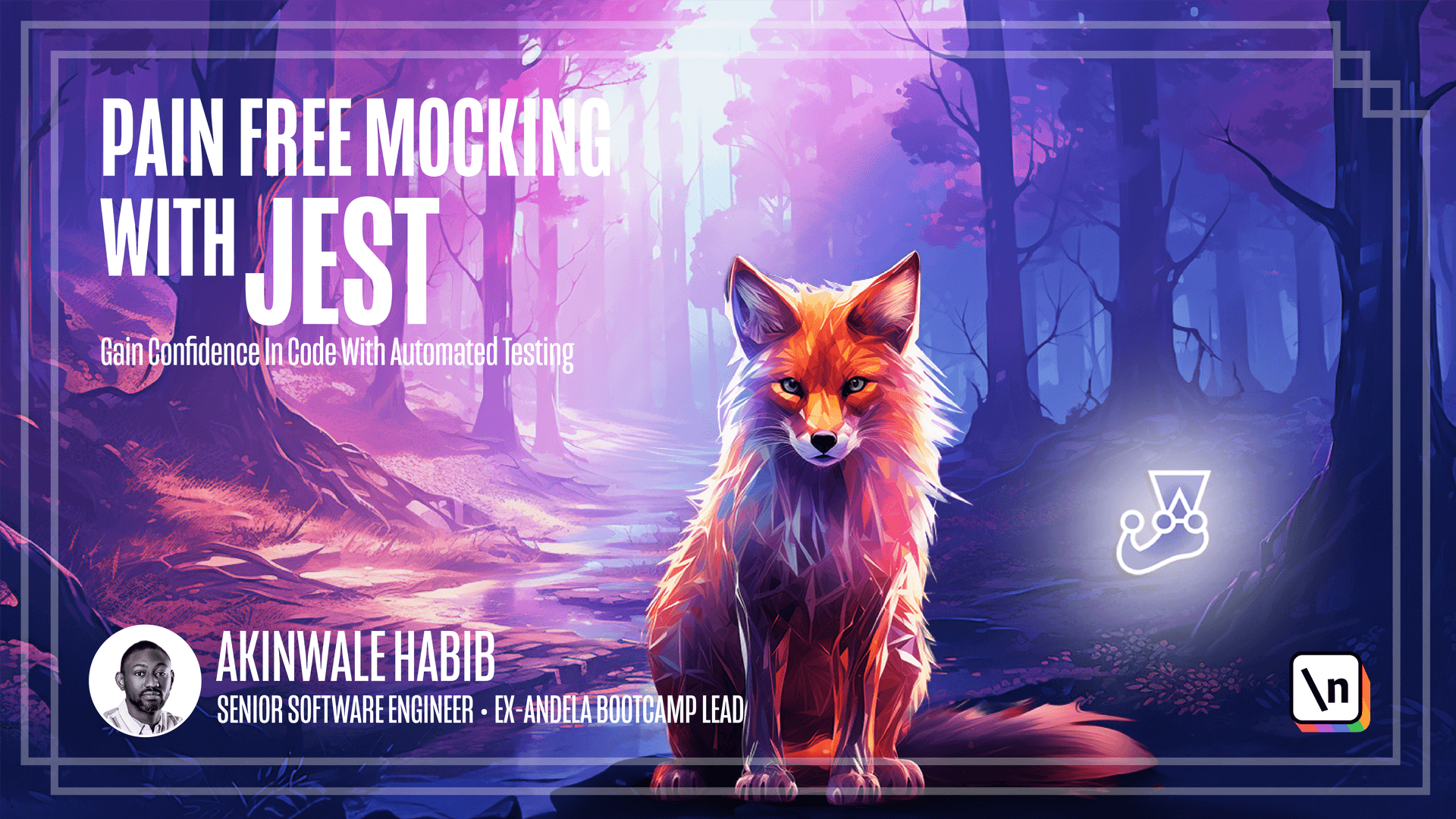Course Introduction
Introduction to Pain Free Mocking with Jest
This lesson preview is part of the Pain Free Mocking with Jest course and can be unlocked immediately with a \newline Pro subscription or a single-time purchase. Already have access to this course? Log in here.
Get unlimited access to Pain Free Mocking with Jest, plus 90+ \newline books, guides and courses with the \newline Pro subscription.

[00:00 - 00:06] Hi there, my name is Akinwale Habib. I'm a software engineer with over six years of experience.
[00:07 - 00:37] I also led coding boot camps at Andela, helping aspiring software engineers gain valuable engineering skills and soft skills. In the course of my career, I've observed that many software engineers or developers struggle with implementing automated testing or mocking application dependencies or collaborators effectively, which often leads to troubleshooting, application and production when bugs occur.
[00:38 - 00:53] I have also worked with code bases that have implemented automated testing and code bases that did not implement automated testing. And I have the experience of the huge benefits of automated testing.
[00:54 - 01:08] I believe learning how to implement automated testing will greatly improve your skills as a software engineer or developer and help you grow your career. In this course, you will learn how to effectively test node.js applications.
[01:09 - 01:30] By the end of this course, you should have fundamental skills to implement unit or integration tests. You should be able to mock application dependencies or collaborators and also simulate edge cases such as slow or failed network requests.
[01:31 - 01:45] This causes dividing into five modules. In the first module, we'll discuss the importance and benefits of automated testing will install application dependencies, including just and explore basic access ions.
[01:46 - 02:06] In the second module, you will learn about unit testing and also how to name and structure your test cases. You will learn about tests, isolation and test doubles such as spies, stops and mocks and how you can use these in just.
[02:07 - 02:34] In the third module, you will learn about integration testing, how to test your HTTP endpoints, HTTP controller and middleware functions and also HTTP API integrations. In the fourth module, you will learn about test containers, which are lightweight to away instances of application dependency or any application dependency that can run in the Docker container.
[02:35 - 02:50] You will also learn how to test third party API integrations using NOC and JEST . In the fifth module, you will implement Git hooks, which runs your test every time you make a Git commit.
[02:51 - 03:07] You will also learn how to use Git or Bactions to run your testing in a CI/CD pipeline environment. We'll design a testing strategy using Azure Testing Quadrant to design, maintainable, test suites.
[03:08 - 03:16] If you have any question, feel free to drop a question in the Discord channel. I'm excited to help you gain this valuable skill.
[03:17 - 03:20] Let's head over to the first module.